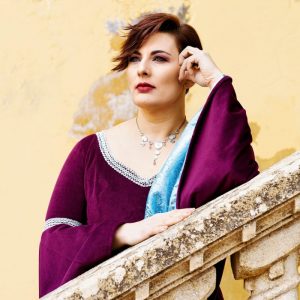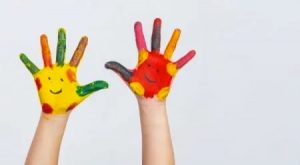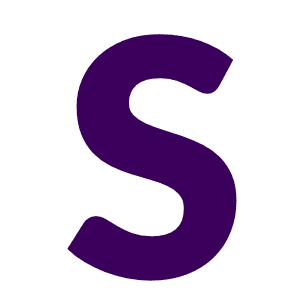Article index
The imperfect circle begins his journey from a research for my thesis of the high training course in artistic vocology.
 He was born from a personal research in collaboration with Maestro Albert Hera, pioneer of singing in circle in Italy and Prof. Gianpaolo Chiriacò, ethnomusicologist and researcher of the University of Salento.
He was born from a personal research in collaboration with Maestro Albert Hera, pioneer of singing in circle in Italy and Prof. Gianpaolo Chiriacò, ethnomusicologist and researcher of the University of Salento.
Looking with different eyes to musical pedagogy and the numerous methods that the teaching of the same proposes in the school, I tried to trace the boundaries of a laboratory (with the aim of being able to reach a real method) that could contribute to a first Musical literacy of the child, through particular attention and awareness to vocal activity and circle activities.
The research started from what are the general principles that I had known through the Circlesong in the activities of Albert Hera , but with a careful eye to the world of our children in a historical period in which they arise and grow bombed by technology and a society that already requires them standardized models.
From here I chose to marry the "non formal education" and in particular the concept of educating through doing , abandoning programs that follow pre -established structures and preferring all the strategies that allow you to detach themselves from the notional, not because they are useless, but because it is simpler To be faced through a path that starts from the experience to then reach knowledge.
The journey of "my" small circle was not easy ... so much so that it becomes an "imperfect circle". Overhaved by my relationship with circlesinging and by the perfection of the circular figure, I found myself having to move away from the same to understand the obstacles, the sudden stops, the changes of direction and the unexpected results I was meeting. Many activities, which originally had been designed in a circle, in order to be "accepted" by small improvisers, have been shaped and followed new forms.
 The laboratory, which today has entered the primary school classes, does not always have an easy life and sometimes they are in contrast with those who, too often, work on "pre -packaged" programs and who base their cornerstones on mnemonic learning or the Question, forgetting that, however, creativity develops the ability to adapt, self -esteem and resilience.
The laboratory, which today has entered the primary school classes, does not always have an easy life and sometimes they are in contrast with those who, too often, work on "pre -packaged" programs and who base their cornerstones on mnemonic learning or the Question, forgetting that, however, creativity develops the ability to adapt, self -esteem and resilience.
The proposed activities, made of laughter, games, improvisation, madness, imaginary worlds, have the intention of educating children not to act quickly, but to think and analyze their ideas by expressing the natural inclinations, without haste, without the fear of be judged and rooted the concepts of sharing and acceptance.
In the imperfect circle, children abandon the bench. They have the freedom to sit, standing or still barefoot, to participate in their own way without being forced. The educator is not a teacher but a facilitator who will follow the rules dictated by the group, will offer paths and will suggest destinations by assisting it if the journey will become confused but remaining open to the "unexpected" possibilities, giving up the control and trusting the management that of course will come Taken. The children will be encouraged to have a significant contribution in learning and hold, themselves, the role of facilitator within the various activities.
Non-formal musical approaches will aim to transmit voice-musical learning, through the use of body percussion, listening and execution, composition and improvisation, abandonment of words, knowledge of popular songs from all over the world; musical activities therefore, but with the aim of allowing the child to:
The voice, like an identity card that provides infinite information, finally becomes the protagonist thanks to its ability to unhinge superstructures, promoting contact with the inner world of the child.
What I try to transmit, I live it myself, every day, during the research activity, with the desire to share and enrich me with the knowledge of others, with the hope that the "imperfect circle" will never find a single center and can reach infinite worlds.
Read the article: Bobby McFerrin: the documentary when the voice becomes sound







